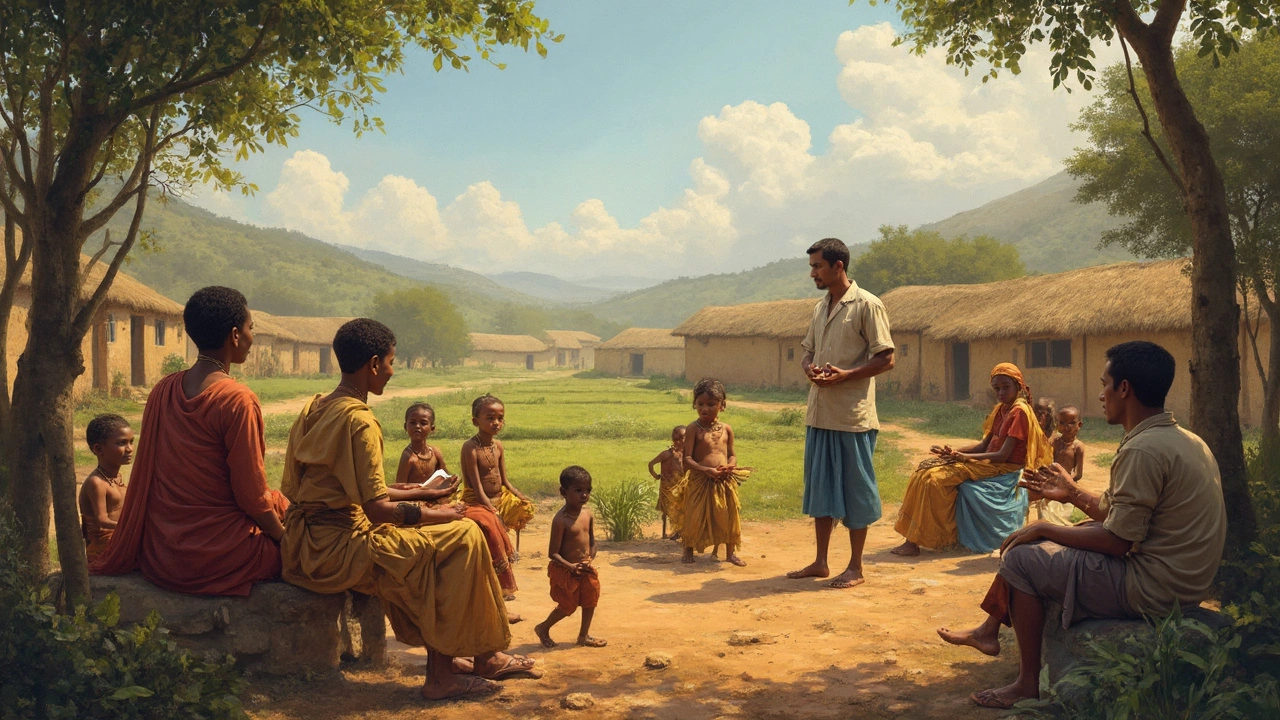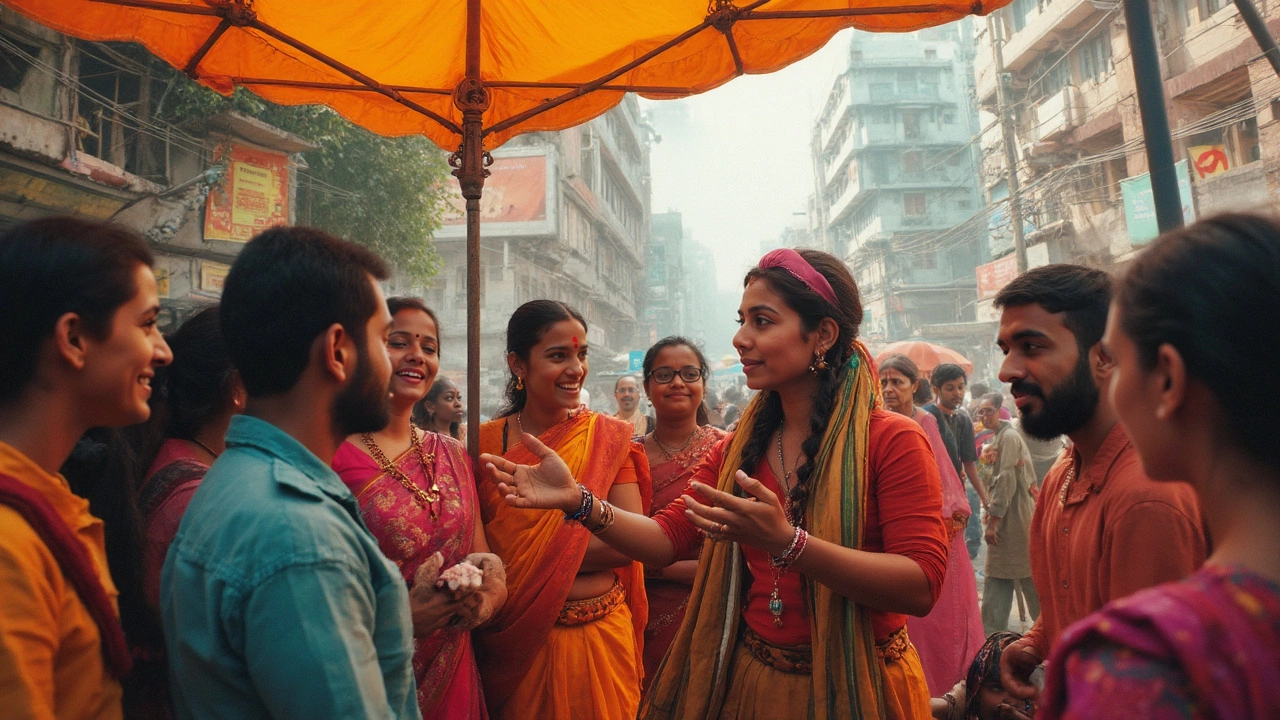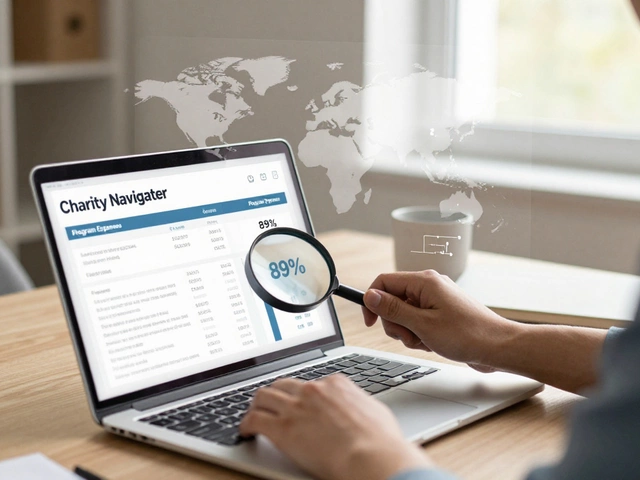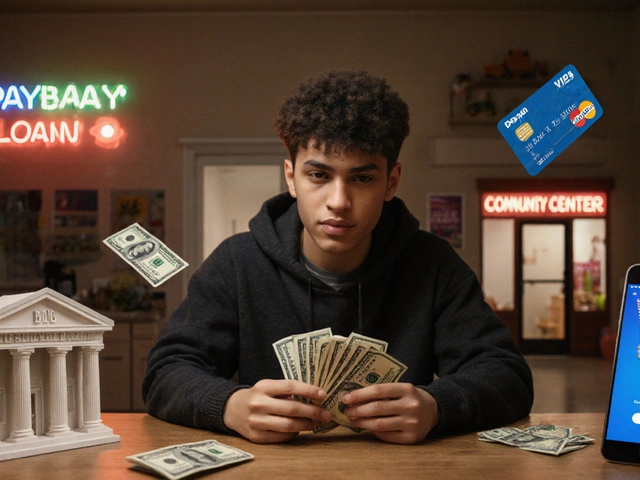When it comes to jobs in outreach, the titles can be as varied as the work itself. Whether you're helping a non-profit spread its mission or getting a new initiative off the ground, your job title might be a bit of a mouthful—or a simple nod to what you actually do. From 'Outreach Coordinator' to 'Community Engagement Specialist,' the name on your business card can tell a lot about your role.
But what do these titles mean? Well, it's mostly about how you connect with people and communities. An Outreach Specialist might focus on building relationships and promoting programs, maybe spearheading campaigns that reach the target audience in creative ways. On the other hand, a Community Engagement Manager might work more on the strategic side, developing long-term plans to keep folks involved and active.
Both roles require a knack for communication and a love for community building. You're the bridge between an organization and the people it serves. And in today's world, these jobs are more crucial than ever. With skills in social media, public relations, and project management, you're not just engaging with the community—you're making a real impact.
- Understanding Outreach Roles
- Outreach Specialist vs. Coordinator
- Community Engagement Professionals
- Skills Needed for Outreach Jobs
- Career Paths in Outreach
- Tips for Landing an Outreach Job
Understanding Outreach Roles
In the world of community outreach, job titles can be a curious thing. They often reflect the variety and complexity of the roles themselves. Every organization has its own way of defining these positions, but there are some common threads that tie them all together.
At the heart of these roles are people who dedicate their time to connecting communities and promoting meaningful causes. Think of them as the glue that holds the organization's message and the public together. The most common titles you'll come across are Outreach Specialist and Coordinator, but there are many more, driven by the specific needs of the organization. You might find titles like Community Liaison, Engagement Manager, or even Public Relations Officer, depending on how external communication is framed.
Someone in an outreach role might wear different hats on any given day. They could be organizing community events, working one-on-one with local leaders, or even managing social media campaigns to boost visibility. The main focus is building and maintaining positive relationships. They ensure that the community is informed and involved in the organization's activities.
The scope of responsibility in these outreach roles can vary significantly. Small non-profits might require an outreach worker to handle everything from strategy to execution, while larger entities could have teams dedicated to different tasks. It's not just about reaching out but also understanding and catering to community needs.
Outreach Specialist vs. Coordinator
The difference between an Outreach Specialist and an Outreach Coordinator might not be clear at first glance, but each role has its unique focus and responsibilities—understanding these can be key to both crafting the perfect job application and knowing what to expect if you're eyeing a career in community outreach.
The main draw of an Outreach Specialist is their laser focus on building and maintaining strong relationships. They're the ones often on the front lines, attending community events, engaging directly with the public, and making connections that matter. Specialists usually have strong communication skills and a keen understanding of their audience's needs, as they work to promote services or programs.
On the flip side, an Outreach Coordinator wears a bit of a different hat. They might handle the logistics behind these efforts, planning campaigns, managing schedules, and ensuring everything runs smoothly. Think of them as the project managers of the community outreach world. Coordinators need to be organized, detail-oriented, and good at multitasking since they're often the glue that holds outreach programs together.
Depending on the organization, both roles might overlap, and sometimes the job titles are even used interchangeably, especially in smaller nonprofits where staff wear multiple hats. But, knowing these distinctions can help you tailor your resume or job description to highlight the skills and experiences that are most valued for each role.
Interestingly, the demand for professionals in these roles has seen a notable increase. According to recent industry stats, there's been a 20% rise in outreach-related job postings over the past year. This uptick reflects how crucial these positions have become, especially with organizations seeking to strengthen community ties amid a rapidly changing social landscape.
So, whether you're smoothing out logistics behind the scenes as a Coordinator or building bridges as a Specialist, both roles are vital cogs in the outreach machinery—each one essential to forging strong, lasting community connections.
Community Engagement Professionals
Community Engagement Professionals are the folks who act as the glue holding organizations and the public together. Their role is all about fostering relationships and ensuring that voices within the community are heard and acknowledged. What might that entail? Loads of different things!
In terms of day-to-day tasks, these pros might be organizing events, managing social media channels, or even working on strategic plans to boost community involvement. A big part of their job is communication—both talking and listening. You need to ensure that what the community wants and needs is on the organization's radar.
Take, for example, a Community Engagement Specialist working for a city government. They might host public forums to discuss community issues, gather feedback through surveys, or lead workshops to educate citizens on upcoming projects. They don't just speak for the organization; they champion causes that the community cares about.
The skills they need are diverse. Public speaking, negotiation, event planning, and digital skills like social media management are top of the list. No two days are the same, and that's what makes it both challenging and rewarding.
What's cool is that this role is as strategic as it is creative. You need to plan long-term strategies while being able to pivot quickly when new issues or needs arise. In a nutshell, whether it's a Community Engagement Manager or an Outreach Coordinator, these professionals bring people together to create positive change, making the world a bit more connected.

Skills Needed for Outreach Jobs
Thinking about diving into a career in outreach? Awesome choice! But before you send out your resume, knowing what skills are essential can really give you a leg up. Strong communication skills are a must. You’ll be chatting with all sorts of people, so being clear and convincing is crucial.
Next up is project management. Juggling numerous tasks, whether it's organizing events or managing campaigns, means staying on top of deadlines and details. You'll need to be a bit of a multitasking pro—that's where your organizational skills come in handy.
Having a knack for social media is huge. In our digital age, engaging online communities is just as important as face-to-face interactions. From crafting catchy posts to responding to comments, your ability to connect through screens can make a real difference.
- Empathy and interpersonal skills: Building trust with community members takes understanding and patience, and these skills help you relate to diverse groups easily.
- Problem-solving skills: In outreach, unexpected challenges are bound to pop up. Being a quick thinker who can come up with solutions on the fly is invaluable.
- Analytical skills: You'll often need to analyze data to track the progress of your initiatives, or even to understand your audience better.
If you're someone who thrives in dynamic settings and loves building connections, then this role might just be your perfect fit. And, as a bonus, you'll be making a meaningful impact in communities, one event or campaign at a time.
Career Paths in Outreach
If you're looking to make a career in outreach, you're in for some interesting job possibilities. While starting as an Outreach Specialist or Coordinator might seem like the initial step, there's plenty of room for growth and moving in different directions.
The typical path often begins with entry-level positions like Outreach Assistant or Coordinator, where you get hands-on experience with community engagement and event planning. Here, you’ll develop crucial skills—think public relations, communication, and project management—that will only become more important as you climb the ladder.
- Outreach Specialist: Once you've got the basics down, moving up to an Outreach Specialist role offers more responsibility, often including planning and executing outreach campaigns. You're the go-to person to make sure messages hit the right audience.
- Community Engagement Manager: Next up, consider stepping into a managerial position. Community Engagement Managers lead teams, oversee outreach efforts, and work closely with upper management to shape outreach strategies.
- Director of Community Outreach: At this level, you’ll set the strategic direction for outreach programs across an organization. Your focus will be more on big-picture strategies and measuring the effectiveness of outreach efforts.
Switching up career paths within the outreach field is a real possibility too. CRMs (Customer Relationship Managers) and roles in public relations or marketing may offer alternative avenues where outreach skills are highly valued.
The bottom line? The skills you gain in outreach are versatile and in demand in today’s job market. Whether you're eyeing a leadership role or want to branch into related fields, the experience you build in community outreach will serve you well.
Tips for Landing an Outreach Job
So you're thinking about diving into the world of outreach? Awesome choice! This gig lets you make a genuine difference, but standing out in the job market takes a bit of work. Here’s how you can snag that outreach specialist role.
First things first, get your resume in shape. Highlight any experience that shows off your communication skills, like previous work in customer service or event planning. Adaptability is key here, so show that you can handle wearing many hats at once.
Networking is your friend. Connect with others in the community engagement field through LinkedIn or local meetups. Sometimes it's less about what you know and more about who knows you. When someone hears about a job opening, you'll want to be the first person that comes to their mind.
Brush up on digital tactics. Many outreach roles now require savvy with social media or email marketing. Even if you’re not doing these full-time, knowing how to leverage these tools will give you a leg up.
- Consider volunteering for organizations you’re passionate about. Not only does it build your resume, it also gets your foot in the door with potential employers.
- Don’t shy away from freelance gigs or part-time contracts. They're great for gaining varied experience.
If you're really serious, consider a certification in public relations or project management. While it’s not always required, having a certificate can make you stand out, especially if you don’t have a long work history in the field.
Finally, tailor your application to each specific job. Employers want to know that you understand their mission and can support their specific goals. This means more than just changing the name in your cover letter—it’s about showing genuine interest in the organization and what they do.
Before you know it, you'll be connecting communities and driving initiatives like a pro!





